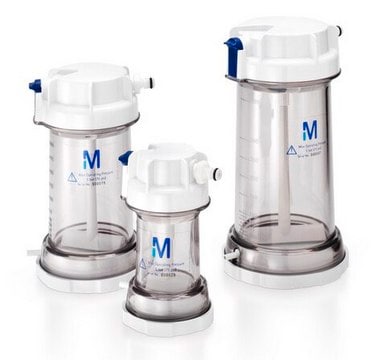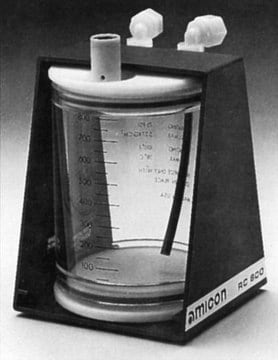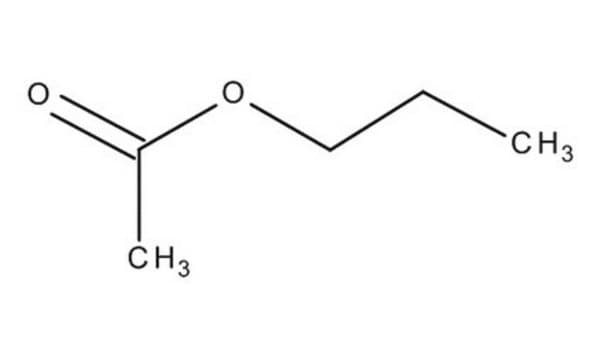W217417
Butyl acetate
natural, ≥98%, FG
Synonym(s):
n-Butyl acetate, Butyl ethanoate
About This Item
Fragrance grade
Halal
Kosher
natural
Recommended Products
grade
FG
Fragrance grade
Halal
Kosher
natural
Quality Level
Agency
follows IFRA guidelines
reg. compliance
EU Regulation 1223/2009
EU Regulation 1334/2008 & 178/2002
FDA 21 CFR 117
FDA 21 CFR 172.515
vapor density
4 (vs air)
vapor pressure
15 mmHg ( 25 °C)
8 mmHg ( 20 °C)
Assay
≥98%
form
liquid
autoignition temp.
790 °F
expl. lim.
7.6 %
refractive index
n20/D 1.394 (lit.)
pH
6.2 (20 °C, 5.3 g/L)
bp
124-126 °C (lit.)
mp
−78 °C (lit.)
density
0.88 g/mL at 25 °C (lit.)
application(s)
flavors and fragrances
Documentation
see Safety & Documentation for available documents
food allergen
no known allergens
fragrance allergen
no known allergens
Organoleptic
banana; green; sweet
SMILES string
CCCCOC(C)=O
InChI
1S/C6H12O2/c1-3-4-5-8-6(2)7/h3-5H2,1-2H3
InChI key
DKPFZGUDAPQIHT-UHFFFAOYSA-N
Looking for similar products? Visit Product Comparison Guide
Application
- Emission factors and source profiles of volatile organic compounds from the automobile manufacturing industry.: The study investigates the emission factors of various volatile organic compounds, including butyl acetate, from the automobile manufacturing sector, providing data crucial for environmental monitoring and regulation (You et al., 2024).
Legal Information
Signal Word
Warning
Hazard Statements
Precautionary Statements
Hazard Classifications
Flam. Liq. 3 - STOT SE 3
Target Organs
Central nervous system
Supplementary Hazards
Storage Class Code
3 - Flammable liquids
WGK
WGK 1
Flash Point(F)
80.6 °F - closed cup
Flash Point(C)
27 °C - closed cup
Personal Protective Equipment
Choose from one of the most recent versions:
Already Own This Product?
Find documentation for the products that you have recently purchased in the Document Library.
Customers Also Viewed
Our team of scientists has experience in all areas of research including Life Science, Material Science, Chemical Synthesis, Chromatography, Analytical and many others.
Contact Technical Service








